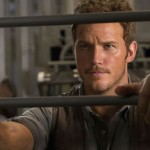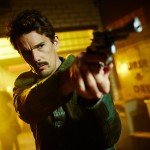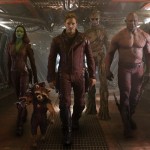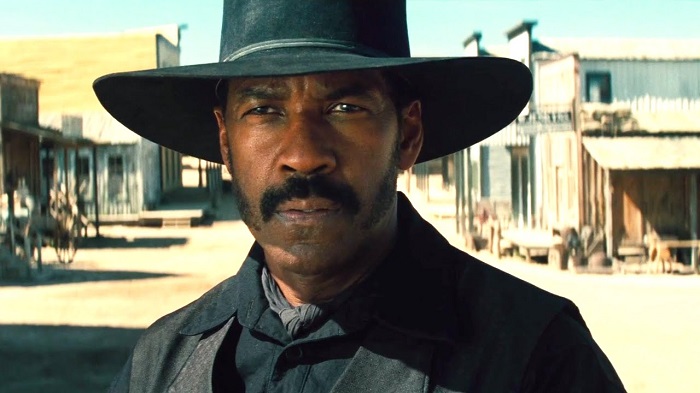
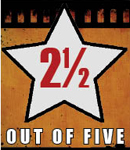
There is admittedly a base level of enjoyment to be gotten from a big-budget Western featuring bona fide movie stars playing cowboys and outlaws in the year 2016. Oh, they still make Westerns these days, but they're usually either of the small and low-key variety (2014's The Salvation, 2015's Slow West) or written and directed by Quentin Tarantino, which practically qualifies them for a whole other genre altogether.
Director Antoine Fuqua's The Magnificent Seven, however, is loud, colorful and classically conceived. Fuqua doesn't attempt to reinterpret or subvert the genre for a modern audience, opting instead to just show us what a paint-by-numbers Western would look like today. And while it's a noble endeavor, it's also the movie's biggest problem. The Magnificent Seven is too by the numbers, offering all the staples of the genre — wide scenic vistas, gunfights aplenty and lots of cold, hard staredowns shot in close-up — without a whiff of originality or invention.
Maybe that's inevitable when you're remaking the Yul Brynner-led 1960 classic that was itself a reinterpretation of Akira Kurosawa's legendary Seven Samurai. Fuqua's version stars Denzel Washington as Sam Chisolm, a late 19th-century bounty hunter tasked with saving a small frontier town from Bart Bogue (Peter Sarsgaard), a despicable robber baron who's forcing settlers off their property so he can mine gold. Bogue has an army at his disposal, so Chisolm goes about recruiting all the help he can get for the job. He snags up Josh Farraday (Chris Pratt), a smart-aleck card sharp; the fabulously named Goodnight Robicheaux (Ethan Hawke), a smooth-talking Southerner; and Vazquez (Manuel Garcia-Rulfo), a Mexican gunfighter wanted by the law. There's also an Indian who shoots arrows (Martin Sensmeier), an Asian who wields knives (Byung-hun Lee) and a D'Onofrio who throws hatchets (Vincent, of course).
So, yeah … seven in total. The story follows the basic Seven Samurai framework, where the heroes spend a good portion of the film training the townsfolk and prepping the area for the inevitable battle to come. Fuqua, along with writers Nic Pizzolatto and Richard Wenk, roll out the story exactly as expected. Certain deaths are telegraphed way before the characters take their last breath. There's a tiny bit of modern-day commentary on the dangers of unchecked capitalism, as well as a nod to the fact the film features a black man and and Confederate sympathizers fighting side-by-side, but these things are touched upon only in brief passing before the film moves on to the Western cliches it is so determined to provide.
The actors are all game, but, sadly, the script gives the characters only the barest of personalities. The stoic Chisolm has a tragic and unnecessary backstory. Robicheaux has lost the nerve to kill, but there's little doubt he'll rediscover it in the nick of time. And those are the two who are the most well-rounded. Also hurting is the dialogue, which is anything but clever. Here's a typical example: Stuck in a precarious situation, one of the gunfighters says to another (and I'm paraphrasing from memory here), "This reminds me of something my daddy used to say." The other replies, "What was that?" The first smirks and answers, "I don't know, my daddy used to say a lot of things." Then they both laugh maniacally like it's the funniest thing they've ever heard, while I'm sitting in the theater wondering if this is what qualified for humor in the 1870s.
The final-act gunfight is technically sound, but I found myself bored by the repetitiveness of it all. The villains mostly miss while the heroes possess perfect aim. There are sacrifices and last-second reprieves, and the whole thing ends up feeling not like a celebration of the genre, but rather a too-polished facsimile of it. Again, it's an under-served genre, and considering The Magnificent Seven follows a summer stuffed with superheroes and sci-fi/fantasy retreads, maybe just being a mildly competent Western is enough to win audience approval. Or maybe the genre ultimately doesn't matter when you're talking about yet another remake without an original thought in its head.


